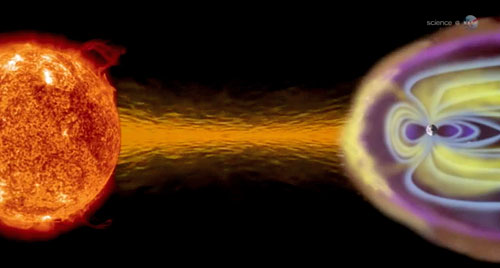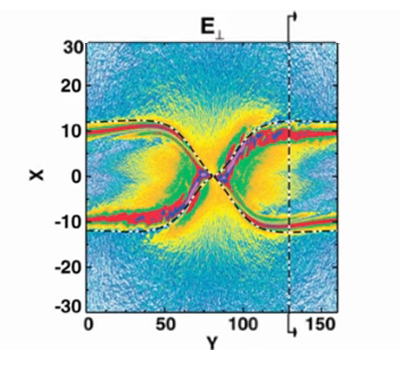|
from OccupyCorporatism Website
Jack Scudder and his team of researchers at the University of Iowa have found "X-points" in the Earth's magnetosphere; a magnetic field naturally generated by the Earth.
The magnetosphere is a protective magnetic buffer between the sun's radiation and solar winds and the earth's atmosphere. It also holds the true northerly direction found with magnetic compasses.
NASA satellites have revealed "portals" in the magnetosphere which Scudder explains are:
These openings allow charged solar particles to be conducted in the planet's upper atmosphere. The effects of this phenomenon are seen as the aurora displays and geomagnetic storms we experience.
David Sibeck, professor with the Goddard Spacelight Center explained in 2008 that,
X-points, which have been seen from NASA spacecraft, are now the focal point of future missions of study to assert more detail.
While they are considered elusive, temporary structures which can form and vanish unpredictably, NASA hopes to be lucky enough to "stumble" upon them once more to analyze data derived from their appearance.
Scudder believes he has found a way to detect them by examining decades old NASA data from the Polar spacecraft which was launched in 1996. It remains in orbit around the Earth despite it's decommission in 2008.
Scudder says:
X-points form when mingling lines of magnetic force from the sun and Earth and join to create the actual portals.
The term "X-points' are where the criss-cross manifests.
Data from NASA's Polar spacecraft, circa 1998, provided crucial clues to finding magnetic X-points. Credit: NASA
Using Scudder's detection system, the time utilized to locate X-points would be greatly diminished. Without it, the location process could take up to a year or more. Finding X-points now should be done with ease and nearly immediately.
NASA will launch a research study called the Magnetospheric Multiscale Mission (MMS) in 2014.
Fours spacecraft used for MMS will use energetic particle detectors and magnetic sensors and spread out in the planet's magnetosphere and encircle the portals to observe how they work.
|


